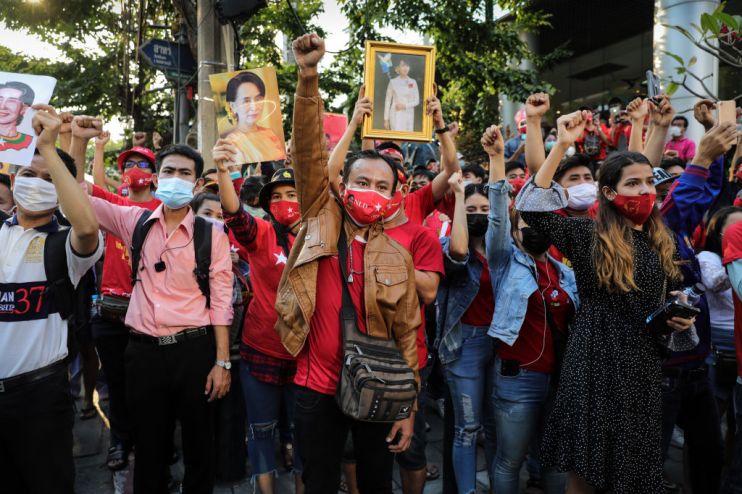Myanmar cuts off internet amid anti-coup protests

Military rulers in Myanmar have shut down the country’s internet in an attempt to muzzle opposition rhetoric as protests against Monday’s coup continue to attract thousands.
Members of the public flocked to the streets in the main city of Yangon, while crowds chanted: “Military dictator, fail, fail! Democracy, win, win!” as riot police blocked the main roads into the city centre.
The internet blackout came just hours after after the military blocked access to Twitter and Instagram to stop people mobilising for protests, with Facebook blocked a day earlier.
NetBlocks Internet Observatory, a non-governmental internet monitoring group, said the country’s connectivity had collapsed to around 16 per cent of ordinary levels. “A near-total internet shutdown is now in effect in Myanmar,” the group said.
Human rights group Amnesty International called the shutdown “heinous and reckless”, urging mobile operators and internet providers to “seek urgent clarification from the Myanmar authorities”.
Telenor, one of Myanmar’s four telecoms companies, said that it had been ordered by the ministry of transport and communications to temporarily shut down its data networks, along with four other mobile operators.
Myanmar’s coup on Monday, which saw elected leader Aung San Suu Kyi and other officials detained by the military, marked an abrupt end to the country’s nine-year-old democratic transition.
The coup took place on the same day that a new session of parliament was set to open, following November’s landslide election win by Suu Kyi’s National League for Democracy (NLD) party.
The military, led by senior general Min Aung Hlaing, justified the putsch by alleging “terrible fraud” in November’s election.
The country’s junta announced a one-year state of emergency and has promised to hand over power after new elections, without giving a timeframe.
Seventy-five-year old Suu Kyi has not been seen in public since the coup. She spent 15 years under house arrest while previous juntas grappled for control of the Southeast Asian country, before the troubled democratic transition began in 2011.
Protestors in Yangon described the atmosphere in the country as carrying a “sense of deja vu”, after a civil uprising in 1988 led to a military crackdown and years of unrest.
Sean Turnell, an Australian economic adviser to Suu Kyi, announced this morning that he is also being detained.